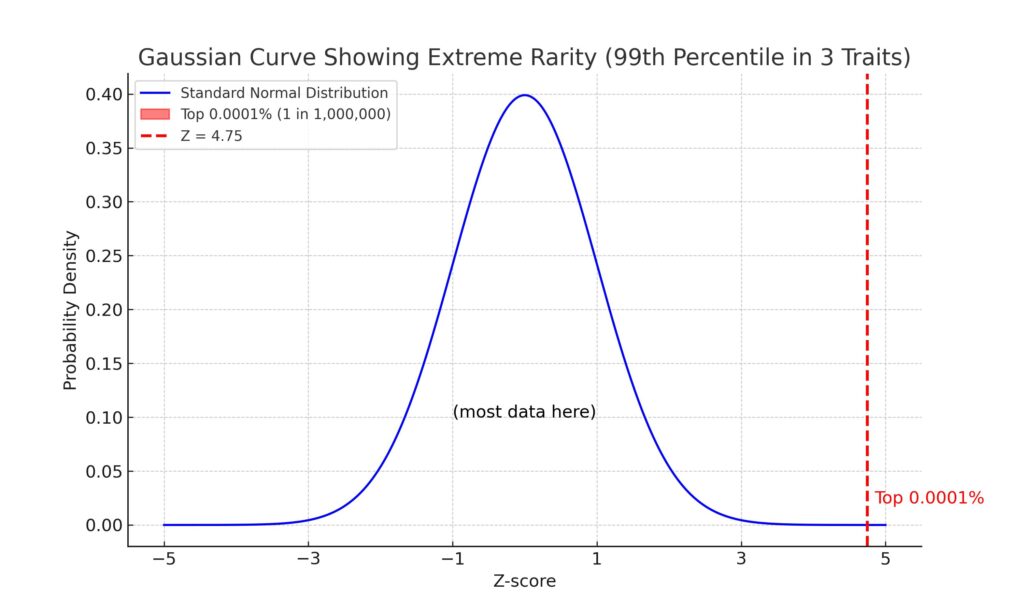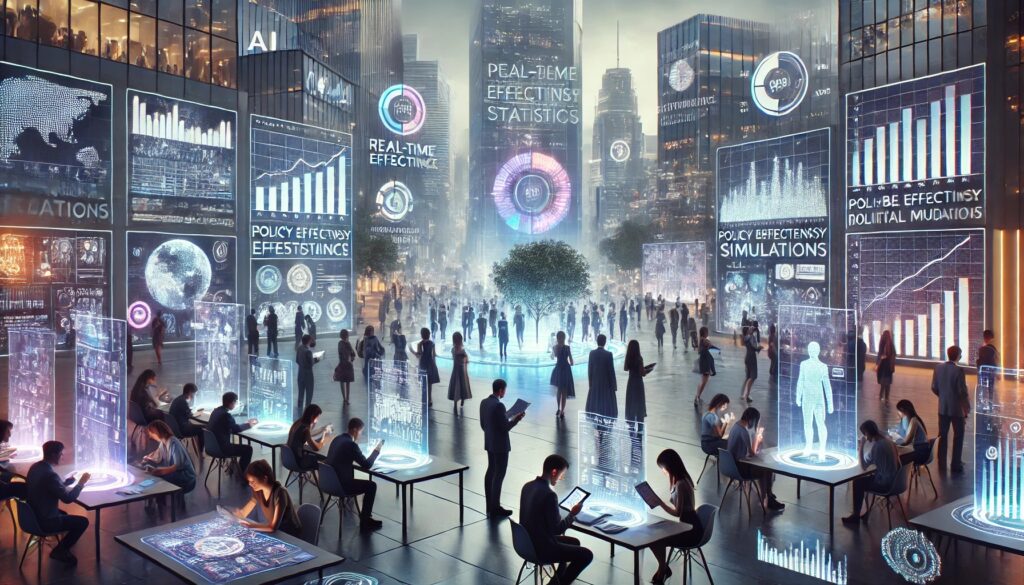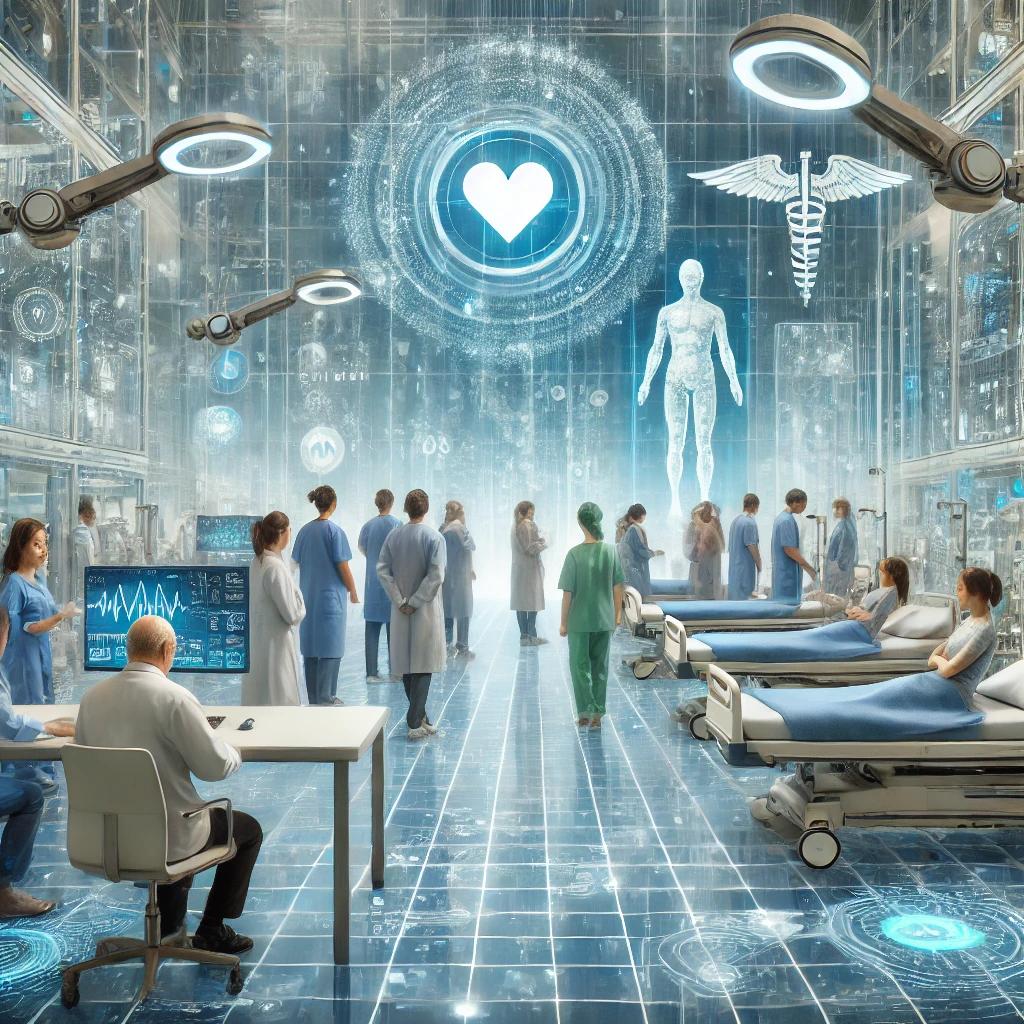Humans evolved to see the world through stories. Politics is no exception. People do not analyze governance through data but through narratives. They have personal favorite politicians, whom they see as saviors, and others they passionately hate. There is no rationality in this. It is pure emotion. It is an evolutionary instinct. The brain prefers heroes and villains. It needs conflict and drama. Elections turn into battles, not policy debates. Governments rise and fall based on charisma, not efficiency. The same decisions, when made by different people, trigger different reactions. What one leader does is seen as corruption, while another is called a genius for the same action. This system is flawed. It creates inefficiency, corruption, and clientelism, it rewards manipulation instead of competence. It ensures that politics remains a spectacle instead of a tool for progress. Politics should be happening in data
Primitive tribal battles

Political debates, rather than being a rational exchange of ideas, resemble primitive tribal battles. Instead of exchanging data, politicians use emotional rhetoric, exaggerated claims, and personal attacks. Televised debates showcase a contest of who can appeal to emotions rather than who presents the best policies. When stripped of the grandstanding, these performances are no different from two apes in the wild trying to establish dominance. Humanity is equipped with storytelling instincts that evolved for survival in small groups, where myths and leadership personas reinforced group cohesion. Modern politics exploits these instincts, making people prioritize loyalty to a party over an objective assessment of facts.
A different system is possible. One that removes emotion from governance. One that replaces storytelling with raw statistics. Politics would no longer be about individuals. It would function as a flow of data. A self-correcting, mathematically optimized system. No more empty promises. No more populism. Only results. A super-efficient economy, a transparent government, and a political process immune to corruption. It would also accelerate scientific progress, leading to breakthroughs in medicine, technology, and human longevity. Diseases like cancer would be eradicated not because of political will but because data-driven policy would allocate resources optimally. There would be no alpha males or females. Leadership would not be based on dominance but on skill, intelligence, and contribution to the system. The efficiency of such a system would push humanity towards unprecedented levels of progress, creating a world where decision-making is based solely on effectiveness rather than rhetoric.
Politics happening in data: From storytelling to data-driven politics
Traditional politics follows a sequence of conflicts. It presents history as a chain of decisive events. One leader rises, another falls. One ideology wins, another collapses. The reality is different. Political change is not a battle between individuals but a process shaped by millions of small adjustments. The alternative system would not rely on politicians. It would track measurable outcomes. It would function like a financial market, where governance is adjusted in real time based on hard numbers. No more ideological battles. No more election cycles. Only constant optimization.
Policies would be introduced, tested, and either reinforced or discarded based on performance. There would be no room for personal ambition or party loyalty. The system would prioritize efficiency over tradition. Governance would evolve like an algorithm, adapting to new data without human bias interfering. A policy that works stays. A policy that fails disappears.
Historical trends show that societies with data-driven policies thrive. Singapore, for example, has used strict data analytics in governance, leading to high economic growth, urban planning efficiency, and social stability. Conversely, policies driven by ideological commitments rather than evidence have led to failures like the economic collapses of Venezuela and Zimbabwe, where rigid ideology trumped data-based governance.
The role of the top 1% in governance

While algorithms would handle most decisions, human oversight would still exist. Only the most intelligent, skilled, and moral 1% would be involved in governance. No elections. No campaigns. Selection would be based on quantifiable excellence. Those who contribute the most to society would be the ones ensuring its future. Their role would not be to lead but to fine-tune the system. They would analyze data, refine policies, and ensure that governance remains on the right path.
This elite would not be untouchable. Their performance would be measured constantly. If they fail to improve the system, they are removed. There would be no political dynasties, no career politicians. Power would no longer be something to chase. It would be a responsibility to uphold. Countries like Finland and Norway have already implemented elements of meritocratic governance, where expertise and evidence-based policies guide decision-making, proving that efficiency improves when political power is assigned based on competence rather than popularity.
Hunter-gatherer politics in a modern world
The political systems of today still function as if humanity were living in small hunter-gatherer groups. Evolution equipped humans with tribal instincts, favoring direct personal connections, storytelling, and charismatic leadership. This worked well for groups of a few hundred people, where leadership was personal and directly accountable. However, these instincts are fundamentally incompatible with the scale of modern nations, particularly populous ones like the United States.
Governance in a complex, interconnected world requires impersonal, systematic approaches. Yet, elections remain emotional spectacles, resembling primitive loyalty contests rather than rational decision-making processes. People instinctively trust personalities over policies, narratives over numbers. This mismatch between evolved instincts and modern society explains why political discourse is dominated by myths, oversimplifications, and symbolic gestures rather than evidence-based governance.
A transition to data-driven governance would break this outdated model. Instead of relying on emotionally appealing figureheads, decisions would be based on real-time statistics, ensuring policies are optimized for an entire population rather than manipulated through tribal allegiances. Education in critical thinking and statistical literacy would help people overcome instinctive biases, allowing for rational civic participation rather than reactionary identity politics.
The psychology of a data-driven society
With politics removed from emotional narratives, people would have to adjust their mindset. The human brain, shaped by evolution, is wired to respond to tribal identity and personal storytelling rather than raw data. This instinct helped early humans form cohesive groups and recognize threats, but in modern governance, it creates inefficiencies. A data-driven society would require a fundamental psychological shift.
People would no longer rally behind personalities but analyze policies rationally. The need for ideological alignment would fade, replaced by an understanding of statistical analysis and outcome-based governance. Cognitive biases such as confirmation bias and the availability heuristic, which drive people to believe familiar and emotionally charged information, would be challenged through lifelong education in data literacy.
Countries that have introduced evidence-based policymaking, such as Estonia and Singapore, demonstrate how data-focused governance improves economic planning and social stability. As citizens grow more accustomed to processing numerical reports rather than emotionally framed narratives, a transition toward a fully data-driven society would become feasible.
A society educated by mathematics and data

For a system like this to work, society itself would need to change. People would have to move beyond storytelling. They would have to think in numbers, probabilities, and models. Politics would no longer be consumed like entertainment. It would be understood as an analytical process. Education would not stop after childhood. It would continue for life. Citizens would be trained to interpret data, to track policy efficiency, and to understand governance in rational terms.
Newspapers would not publish sensationalist headlines. Instead of “Government Scandal!” or “Leader X Destroys the Economy!”, they would present statistical reports. People would read about projected well-being indexes, economic growth rates, and the measurable effects of policies. Every claim would be backed by data. Every discussion would be based on numbers, not emotions.
Elections, if they still existed, would not be about personalities. They would be about statistical models. Instead of listening to speeches, people would test policy simulations. Instead of choosing between slogans, they would compare forecasts.
Governance would be transparent. Every policy decision would be tracked. Every outcome would be measured. If a policy improved society, the data would show it. If it caused harm, the data would expose it. There would be no need for protests, scandals, or debates. The numbers would speak for themselves.
Big data: The death of political ideologies
Governance would no longer be driven by left-wing or right-wing ideologies. There would be no debates about capitalism versus socialism. Every policy would be tested through data and optimized for efficiency. Ideological battles would become obsolete, replaced by evidence-based solutions. Political discourse would shift from philosophy to measurable progress. Governments would implement policies not because of ideological alignment but because of proven success in data-driven models.
How highly developed AI could enable this system
A truly data-driven political system would require AI to process, analyze, and implement governance decisions at a scale beyond human capability. Advanced machine learning algorithms could continuously monitor economic, social, and environmental trends, adjusting policies in real time to maximize efficiency and well-being. AI could evaluate thousands of policy variations simultaneously, selecting the optimal choices based on long-term stability and prosperity.
Deep learning models could predict economic downturns, detect inefficiencies in healthcare, and optimize resource allocation across sectors without human biases. Predictive analytics, already used in finance and logistics, could be expanded to governance, ensuring that crises are anticipated and mitigated before they escalate.
Neural networks would enable a shift from reactive to proactive governance. Rather than waiting for problems to arise, AI could identify risks before they manifest, implementing adjustments to prevent negative outcomes. For example, AI-driven urban planning could optimize transportation networks, reducing congestion and pollution while improving economic productivity. Similarly, AI-powered legal analysis could ensure that justice is administered fairly, removing inconsistencies in sentencing and eliminating judicial bias.
The integration of blockchain technology could ensure transparency in AI decision-making, preventing tampering or hidden manipulations. Public access to AI-generated policy reports would allow citizens to scrutinize governance decisions and hold the system accountable. This combination of artificial intelligence, automation, and open data access would create a governance system free from corruption, inefficiency, and human error.
Technology as the new government
Algorithms, AI, and predictive modeling would take over policy-making. Governments would be managed like self-regulating systems, adjusting policies based on real-time data. Bias and corruption would be minimized. Decisions would be driven by mathematical models instead of human intuition. The government would function like a high-performance machine, eliminating inefficiencies automatically. Advances in AI-driven governance (politics happening in data), such as China’s use of big data in urban management, already demonstrate the potential of this system.
Data-driven reforms for the United States

For the U.S., healthcare reform—emphasizing universal and free access—could shift to a fully data-driven model, where AI optimizes resource allocation based on real-time patient needs and disease patterns. Instead of political debates over healthcare funding, policies would be continuously adjusted to ensure maximum efficiency. A national AI-powered system could analyze vast medical datasets to predict and prevent health crises, reducing costs and improving outcomes without bureaucratic inefficiencies.
Similarly, economic policy could be automated through AI-driven fiscal management. Taxation rates, infrastructure investments, and social spending would be optimized based on economic data rather than political cycles. AI could model different economic scenarios, ensuring policies create stable growth while minimizing wealth inequality. This approach would eliminate loopholes used by corporations and the ultra-wealthy to avoid taxes, ensuring a fairer distribution of economic benefits.
Prison reform and gun control policies
Prison reform could be revolutionized with AI-driven analysis of crime patterns and recidivism rates, ensuring sentences are fair and rehabilitation-focused. Predictive models could identify high-risk areas and allocate resources to prevention rather than punishment. Data-driven approaches would minimize wrongful convictions, eliminate racial bias in sentencing, and focus on rehabilitation over incarceration.
Gun control policies could be structured through AI-driven risk assessment, analyzing crime data and firearm usage trends to implement evidence-based regulations. Instead of blanket policies driven by political ideology, regulations would adapt dynamically based on gun-related crime statistics, mental health indicators, and law enforcement efficiency, ensuring optimal public safety.
Mental health reform is essential in a data-driven governance model. AI could track mental health trends in real time, allocating resources to areas where depression, anxiety, and other disorders are most prevalent. Predictive analytics could identify communities at risk of mental health crises, enabling targeted interventions. Schools, workplaces, and public health institutions would integrate AI-driven mental health screenings to provide early support, reducing suicide rates and improving societal well-being.
Homelessness and education reform
Homelessness could be tackled with AI-driven tracking systems that analyze economic instability, housing affordability, and social service efficiency. Instead of relying on temporary shelters and reactive policies, data-driven governance would implement long-term solutions that integrate housing, job placement, and mental health services into a seamless support system.
Education reform could be transformed through AI-driven personalized learning. Student performance data would be analyzed in real time, enabling adaptive curricula tailored to individual learning needs. Schools would receive targeted funding based on educational outcomes, reducing achievement gaps and improving nationwide academic performance. AI would also identify students at risk of falling behind, allowing early intervention to ensure long-term success.
Environmental and climate policy would benefit from AI-powered monitoring systems that track pollution levels, optimize energy consumption, and implement real-time carbon tax adjustments. Dynamic climate models would provide accurate predictions for disaster prevention, resource allocation, and emergency response. AI-driven incentives for green technology adoption would create a more sustainable economy while balancing industrial productivity.
Public transportaton and infrastructure
AI-optimized public transportation and infrastructure planning would eliminate inefficiencies in urban development. Smart traffic systems would analyze congestion patterns and adjust traffic flow in real time, reducing travel times and emissions. Predictive maintenance algorithms would ensure roads, bridges, and public transit systems are repaired before failures occur, minimizing costs and disruptions.
Immigration and border policy reform could be streamlined through AI-driven processing and security measures. AI would analyze migration trends, detect fraudulent applications, and allocate resources dynamically based on labor demand and humanitarian needs. This system would ensure fair, efficient, and transparent immigration processes, reducing bureaucratic backlogs while maintaining national security.
Workforce automation and job market adaptation would prevent mass unemployment during technological transitions. AI-driven labor market analysis would predict industry shifts, allowing preemptive worker retraining programs. Job seekers would be matched with in-demand skills, ensuring economic stability as automation reshapes employment landscapes.
By integrating AI-driven governance across multiple sectors, the United States could achieve a more efficient, fair, and forward-thinking society, free from outdated bureaucratic inefficiencies and ideological stagnation.
Politics happening in data: The collapse of the political media industry
Media thrives on conflict, scandals, and narratives. If governance became data-driven, political media would lose its influence. News would become reports of statistical analysis instead of sensational headlines. Media organizations would have to adapt, focusing on uncovering inefficiencies instead of pushing partisan narratives. Clickbait-driven political coverage would disappear, replaced by factual, data-based journalism that informs rather than manipulates. Moreover, media outlets would act as checks on each other, exposing clientelist ties and ensuring that no institution remains immune from scrutiny.
The future of law and justice
Courts would no longer rely on subjective interpretation. Laws would be optimized for fairness using data. Judges and juries would be replaced by AI-driven legal analysis, ensuring consistency in every case. Justice would be purely logical, free from bias or favoritism. Sentencing, legal decisions, and law enforcement would be handled with mathematical precision. Predictive justice systems, already in use in some parts of the world, would expand to ensure crime prevention and fair sentencing based on unbiased data rather than human emotions.
A scientific revolution through data-driven governance
A shift toward a fully data-driven governance model would not only improve policy-making but also trigger a new scientific revolution. With political decision-making optimized through AI and real-time analytics, funding and resources would be allocated with mathematical precision. Scientific research would no longer be at the mercy of political trends or lobbying influences. Breakthroughs in medicine, energy, and space exploration would be accelerated as data-driven policies direct investment toward the most promising areas.
This transformation would make problems such as climate change, food scarcity, and disease eradication solvable at unprecedented speeds. AI-assisted governance could predict health crises before they emerge, allocate research funds based on impact probabilities, and ensure that technological innovations reach the widest possible audience. A governance model rooted in hard data would mean the end of stagnation, paving the way for continuous scientific discovery and long-term human advancement.
The end of lobbyists, Big Banks, and the super-rich families dictating policy
Under the current system, global governance is heavily influenced by lobbyists, multinational banks, and powerful families who dictate economic and political agendas behind the scenes. These entities manipulate regulations, control markets, and ensure that policies favor their interests rather than those of the general population. Through well-funded lobbying efforts, they exert disproportionate influence over legislative processes, often crafting laws that entrench their dominance and minimize competition.
A transition to a fully data-driven governance system would dismantle this power structure. Policy decisions would no longer be susceptible to financial influence or backroom deals. AI-driven governance would base decisions solely on efficiency, fairness, and long-term stability, rather than on pressure from corporate donors. Economic policies, tax regulations, and industry standards would be optimized for the well-being of the entire population rather than a select elite.
Blockchain technology could ensure full transparency in financial transactions, preventing illicit lobbying efforts and hidden political contributions. The super-rich and large corporations would no longer be able to shift tax burdens onto the working class or manipulate economic regulations to serve their interests. Data-driven governance would close loopholes, enforce equitable taxation, and ensure that wealth distribution aligns with measurable contributions to society rather than inherited privilege.
Total utilitarianism: Infinite consciousness, infinite ecstasy
The ultimate goal of a data-driven governance system would be maximizing total well-being—not just for the present but for the entire future of civilization. Every policy would be judged based on its long-term impact. Governance would not just be about improving life for current generations but about ensuring that as many conscious beings as possible experience the highest states of happiness for eternity.
This system would not limit morality to human well-being. Any form of consciousness capable of experiencing joy would be included. If AI or artificial lifeforms reached a point where they could feel happiness, their existence would be part of the equation. Robots would not just serve as tools but evolve into conscious entities capable of fulfillment. Sentient machines would be part of the moral calculus, and policies would be shaped to increase the number of beings experiencing ecstatic states.
War would not be condemned based on ideology but because data would show its immense negative impact on well-being. Economic policies would not be based on tradition but on which models create the highest overall happiness. Governance would not be about enforcing rules but about optimizing the universe itself for infinite pleasure and fulfillment. A world run by AI-driven data governance could become an engine of happiness maximization, ensuring that suffering is minimized while fulfillment is expanded across all sentient forms.
The detrimental effects of social nedia and traditional media
Social media and traditional media have eroded rational discourse, replacing data-driven discussions with sensationalism, misinformation, and tribalistic rhetoric. Platforms driven by engagement algorithms prioritize emotionally charged content over factual reporting, leading to polarization, misinformation, and reduced critical thinking. Rather than facilitating informed debate, these systems manipulate public perception through clickbait headlines and outrage-driven content cycles.
Traditional media, influenced by corporate interests and political biases, often distorts facts to fit predetermined narratives. News cycles focus on scandal and spectacle rather than substantive policy analysis. This model rewards sensationalism over accuracy, fostering division and obscuring real issues. Instead of fostering a well-informed electorate, media systems manufacture consent, shaping public opinion to serve elite interests rather than societal progress.
A transition to AI-driven analysis and data-backed reporting would counter these detrimental effects. AI could filter out misinformation, prioritize factual accuracy, and present policy discussions based on measurable outcomes rather than ideological biases. Data-driven media models would present real-time statistics, policy effectiveness scores, and long-term impact projections, enabling the public to engage with politics based on evidence rather than emotion.
Social media should be abandoned as a source for determining whom to vote for. The manipulation of public opinion through engagement-driven algorithms fosters a misinformed electorate. Instead, voters should rely on transparent, data-backed AI analysis that evaluates policy effectiveness, leadership competence, and long-term societal impact. Removing emotion-driven media influences would ensure that political decisions are made based on facts rather than viral misinformation.
By integrating AI-driven governance across multiple sectors, the United States could achieve a more efficient, fair, and forward-thinking society, free from outdated bureaucratic inefficiencies and ideological stagnation.
Conclusion
Politics, as it stands today, is a relic of humanity’s evolutionary past. It is an arena where emotions override reason, where tribal instincts dictate policy, and where personal charisma matters more than competence. Governance is trapped in a primitive model, designed for small, close-knit groups, yet stretched across entire nations. This outdated system rewards populism, manipulates perception, and thrives on inefficiency. The result is a world where corruption flourishes, policies serve the wealthy elite, and long-term progress is sacrificed for short-term spectacle.
A data-driven system would break this cycle. It would eliminate the dominance of emotions and personal biases in governance, replacing them with a framework that constantly evolves based on results. No more empty rhetoric, political dynasties. No more manipulations that exploit human psychological weaknesses. Policies would be measured by their effectiveness, refined through real-time analytics, and adjusted with scientific precision.
This is not just a political shift—it is the foundation of a new era. A world governed by data would unlock the potential for accelerated scientific revolutions, economic stability, and total utilitarianism where conscious beings—human or artificial—maximize their fulfillment. It would dismantle the influence of lobbyists, big banks, and inherited wealth, ensuring that governance serves all of society rather than a privileged few.
The great future
The question is not whether this future is possible. The question is whether humanity is ready to embrace it. The transition will not be easy. Overcoming millennia of instinct-driven politics will require a fundamental shift in how people think, how they engage with governance, and how they view power itself. But history has shown that progress is inevitable. Data-driven governance is not just an alternative—it is the next stage of civilization itself.
Politics today is broken. It is emotional, irrational, and inefficient. People see it as a battle of personalities rather than a system of governance. They choose sides based on emotions rather than facts. They resist change even when the data proves it is necessary.
A politics based on data could remove these inefficiencies. It could create a system free of corruption, free of emotional bias, free of ideological stagnation. It could ensure that policies evolve constantly, always improving, always adapting. And also, it could maximize well-being not just for today but for the entire future of civilization. Historical case studies, ranging from Estonia’s digital governance to Singapore’s data-driven efficiency, suggest that such a transition is not only possible but inevitable. The next era of civilization will not be led by ideologues but by numbers, science, and precision-based governance. Politics should be happening in data.

Leave a Reply